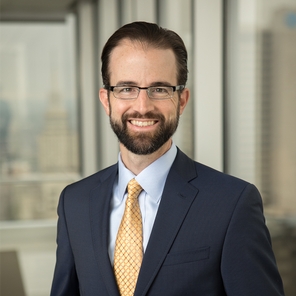
Go, Hedgie, Go: Hedge Fund challenges IRS' Position on Limited Partner Exception to Self-Employment (SE) Tax
By Anthony P. Daddino on October 24, 2022
-
 Anthony P. Daddino
Anthony P. Daddino
View Bio
The tax community has been searching for a mighty torch bearer to challenge the IRS’ position that a limited partner cannot wear two hats: one, as a service provider that receives guaranteed payments subject to self-employment (SE) tax, and another, as an investor that receives his or her share of partnership income exempt from SE tax. And it appears we now have one.
Enter Soroban Capital Partners, a hedge fund founded by Eric Mandelblatt, Gaurav Kapadia, and Scott Friedman. Pursuant to its limited partnership agreement, the hedge fund was managed solely by its LLC general partner. Mandelblatt, Kapadia, and Friedman, each provided services to the hedge fund either directly or indirectly through the general partner, but allegedly never in their capacity as limited partners. The hedge fund made guaranteed payments to the partners for their services, but otherwise reported their respective distributive shares as not subject to SE tax. The hedge fund relied on IRC Sec. 1402(a)(13), which states limited partners are exempt from SE tax on partnership income. What constitutes a “limited partner” under this provision has stirred up an increasing amount of controversy in recent times. While the Tax Court has rendered a handful of decisions based on the “silent investor” test advocated by the IRS, the issue has not been fully vetted nor been the subject of significant judicial review outside of the Tax Court. Under the “silent investor” test, a partner is considered a limited partner for purposes of IRC Sec. 1402 only if the taxpayer is a mere passive investor who does not actively participate in the entity’s business operations. Once the taxpayer so participates, regardless of the role in which that participation occurs, none of the taxpayer’s distributive share of partnership income is exempt from SE tax. In short, it is an all-or-nothing determination.
The hedge fund seeks to debunk this interpretation, arguing that the limited partner co-founders wore two hats (i.e., service provider and investor) and the partnership properly recognized each hat in its reporting. See Soroban Capital Partners LP v. Commissioner, Docket Nos. 16217-22 and 16218-22.
Historically these disputes have involved small dollars. For example, in Castigliola v. Comm’r, T.C. Memo 2017-62 (April 12, 2017), the taxpayer-partners were contesting a liability that was only a few thousand dollars to each of them. Soroban Capital Partners, however, is a different story, where the parties are fighting about whether a combined $141 million over two years will be subject to SE tax. Despite the IRS’ opposition, the structure at issue in Soroban Capital Partners is quite common and brings parity between partnerships and S corporations on the issue of self-employment taxes.
All together now: Go, Hedgie, Go!!
If you have any questions about this Blog post or any IRS or tax-related matter, feel free to contact me directly at (214) 749-2464 or adaddino@meadowscollier.com.
Enter Soroban Capital Partners, a hedge fund founded by Eric Mandelblatt, Gaurav Kapadia, and Scott Friedman. Pursuant to its limited partnership agreement, the hedge fund was managed solely by its LLC general partner. Mandelblatt, Kapadia, and Friedman, each provided services to the hedge fund either directly or indirectly through the general partner, but allegedly never in their capacity as limited partners. The hedge fund made guaranteed payments to the partners for their services, but otherwise reported their respective distributive shares as not subject to SE tax. The hedge fund relied on IRC Sec. 1402(a)(13), which states limited partners are exempt from SE tax on partnership income. What constitutes a “limited partner” under this provision has stirred up an increasing amount of controversy in recent times. While the Tax Court has rendered a handful of decisions based on the “silent investor” test advocated by the IRS, the issue has not been fully vetted nor been the subject of significant judicial review outside of the Tax Court. Under the “silent investor” test, a partner is considered a limited partner for purposes of IRC Sec. 1402 only if the taxpayer is a mere passive investor who does not actively participate in the entity’s business operations. Once the taxpayer so participates, regardless of the role in which that participation occurs, none of the taxpayer’s distributive share of partnership income is exempt from SE tax. In short, it is an all-or-nothing determination.
The hedge fund seeks to debunk this interpretation, arguing that the limited partner co-founders wore two hats (i.e., service provider and investor) and the partnership properly recognized each hat in its reporting. See Soroban Capital Partners LP v. Commissioner, Docket Nos. 16217-22 and 16218-22.
Historically these disputes have involved small dollars. For example, in Castigliola v. Comm’r, T.C. Memo 2017-62 (April 12, 2017), the taxpayer-partners were contesting a liability that was only a few thousand dollars to each of them. Soroban Capital Partners, however, is a different story, where the parties are fighting about whether a combined $141 million over two years will be subject to SE tax. Despite the IRS’ opposition, the structure at issue in Soroban Capital Partners is quite common and brings parity between partnerships and S corporations on the issue of self-employment taxes.
All together now: Go, Hedgie, Go!!
If you have any questions about this Blog post or any IRS or tax-related matter, feel free to contact me directly at (214) 749-2464 or adaddino@meadowscollier.com.
